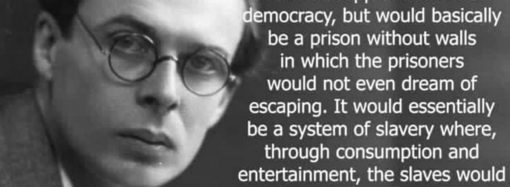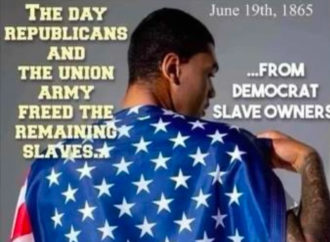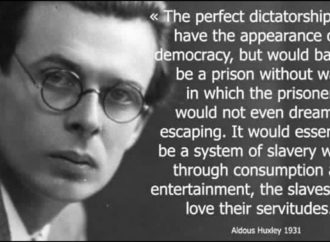We live in a world in which men, shamed beyond endurance by a male-hating Feminist establishment, strike out in desperation at those they judge responsible.

We are approaching once again the grim anniversary of Marc Lepine’s murder of 14 female engineering students at Montreal’s École Polytechnique.
Last year, here in Ottawa, women held a candlelight vigil (men were not welcome) at the city’s monument to women killed by men, at which words and tears of grief and rage at men were expressed. It is a strange ritual, an annual re-opening of a wound and an almost exultant display of anger, like Jews visiting Auschwitz to rekindle their outrage (which, to their credit, I have never heard of them doing). Such passionate public rituals are deep windows into our culture, but what they reveal does not always match what the participants believe.
In 1993 I read a library book in which were transcribed all the conversations between a popular radio talk show host (I can’t remember which one) and his listeners, in the few weeks after the ‘Montreal Massacre’. For me, an eager student and detective of gender culture, it made fascinating reading. Many of the callers took the feminist position that Lepine’s murders were representative of general male misongyny; some (mainly men) disagreed strongly with that position and insisted that he was a lone madman, representative of no one but himself. It was only after I finished the book that I realized; in all the hundreds of exchanges, some basic points had been overlooked and a fundamental question had never been asked. In fact, I have never heard it asked to this day. In this article I propose to ask and to answer this question.
First, something usually overlooked.
Marc Lepine wasn’t trying to kill women. He was trying to kill feminists. Before he opened fire, he said to the female engineering students, “You’re all feminists. I hate feminists!” And in his suicide note, Lepine wrote, “Feminists have wrecked my life.” In all of the vast discussion and analysis of his motives and his circumstances, isn’t it curious that no one, to my knowledge, has yet taken him seriously and looked at his life to discover why he believed it had been wrecked by feminists.
The reason, of course, is that we assume we already know. Feminists, we believe, are pursuing the equal rights of women, and insecure, patriarchal men like Lepine resent having to share their male privileges with women, hence their anger and hate. But this explanation is built on an assumption and a stereotype: let’s check them out. In particular, let’s now ask the basic question that was never asked in all the Montreal Massacre debate: Are there ways in which feminism is genuinely damaging, even wrecking, the lives of men?
But before I continue, I need to confess to you that I hate doing this.
I, like most men of my generation, was conditioned to protect women, to see them as more delicate and fragile, more pure and valuable. I learned to see them as morally superior, above the dirty, grubbing impusles of sexual and materialistic need that I knew were part of my makeup. I didn’t like that, but I could live with it because I also had areas of superiority: I was stronger and more competent in the work world, more mechanical and more rational. I couldn’t have articulated these things then as I have here, but at some level I knew them, and they felt right. I knew that a good man, in an emergency, would sacrifice his life to save that of a woman, as so many men have, and that also seemed right to me. And, I confess to you, I have not yet removed this brainwashing from my soul. Despite years of awareness of my conditioning and active personal work to dismantle it, there is still a part of me that wants things to be this way, that knows no way to find redemption from my personal unworthiness except in the approving, affirming eyes of a loving woman. When I think with this part of me, I know that honour comes from having the power to abuse her, but choosing not to, and instead protecting and cherishing her.
This historical, archetypal, unhealed part of me is clear that men’s and women’s roles are different, and that it does not fall to me, a man, to correct women on moral issues. That is their purview, their jurisdiction. But it is bigger than that. It is not just their jurisdiction, but their right, and I am unworthy to do it, lacking their purity. And so when necessity drives me, finally, to speak out and say, “But that’s not true, not right,” I feel, at a deep level, ashamed. I feel I have abused women, I feel I have lost my route to redemption, I feel fundamentally unworthy. Is this why men who in desperation murder women, perhaps their wife (or ex wife) and children, frequently then turn their gun, as Marc Lepine did, on themselves? I think so.
And so I wish, as I begin my analysis of Feminism, to apologise to women for my presumption in stepping onto their turf. And yet, it is necessary, for things have gone very badly wrong. And I can deal with what it brings up for me, for that old, conditioned, patriarchal part of me is no longer all, or even most, of who I am today, and for that Feminism deserves some of the credit.
All of modern feminist analysis is built on one conceptual foundation: that men as a gender have more power than women. Not just different power, but greater power. Liberal, socialist, radical, eco – all brands of feminism share this one foundation. All the theories and policies, the institutions and accomplishments of feminism (eg. legislation on date rape, sexual harrassment, employment equity, domestic violence; women’s shelters and crisis lines, programs for abused women and abusive men as well as the biases in family court), all are founded on and justified by this one belief. If this belief is false, then all these activities are not correcting an existing imbalance, but rather creating or worsening one. I will argue that this foundation of feminism is false, that power between men and women is balanced and has been throughout history.
My argument hinges on violence.
Consider that in prehistoric society there was a need, on occasion, for either aggressive or defensive fighting. Such needs arise naturally from the competition between tribes for resources, or for any number of more complex reasons. (The modern notion that primitive societies were peaceful and harmonious is a nostalgic fantasy: most, like the Native Americans, were warlike long before they encountered Europeans.) Given the boiological differences between men and women which lead naturally to the women being engaged in child rearing and the men in hunting (and which division of labour is also common in the animal kiingdom), this task of war would tend to fall to men. And that would result in a problem. For once men, as a gender, organize themselves as a fighting force, what is to prevent them from taking over the society, enslaving women and taking what they wish from them? As, indeed, happens to this day in military coups. But why doesn’t it happen everywhere, all the time?
The answer is that nature always finds a balance. The balance in this case was provided by an honour code. In elegantly simple fashion, men held the physical power and women the moral power. Each had a power over the other, and each had something the other needed. Men had the physical power but needed the moral affirmation of women in order to achieve social status, not to mention a wife and children. Women had the moral power but needed the physical protection and perhaps also the provision of food and shelter of men. Of course, at first i imagine there were many tribes where the men enslaved the women. What must have happened is that such tribes were less effective, less efficient than those where the balance of power was invented and men and women were able to work cooperatively, and so over time evolution favoured those with an honour code restraining the force of the warrior men. And we are their descendents.
This honour code has taken many forms over time, from the ritual chivalry of the middle ages to the exaggerated puritanism of the Victorians, but it has always been (usually covertly – or at least, unknown to men) focused on and controlled by women. Its deepest root is, of course, the power that women have to grant or withhold sexual favours, and so to cut off a ‘dishonourable’ man from the right to progeny or a normal life. (And incidentally, this is the reason why the sexual revolution of the fifties failed to deliver us to sexual equality, but instead resulted in the rise of Feminism, which restored sexual control by women under the guise of equality ‹ but that’s another article.) This honour code is deeply and fundamentally alive in men today, and it is still society’s greatest defense against both individual and collective male violence. And this is where the urgency of our present situation is apparent, for Feminism has, for the first time in history, turned women from shaming individual men who are judged dishonourable, to shaming men in general and masculinity as an institution. And the very real danger in this is that if men come to perceive that there is no way for them to achieve honour, to be recognized publicly and privately as ‘good’ men, then they may sense that they have little to lose by taking what they want, since they have little to gain by restraining themselves. I very much fear that if we do not turn aside from our still-growing, wholesale shaming of men and the Patriarchy and all things male, that our future may contain civil violence of a degree we have never seen before.
I will not attempt to prove my thesis to you in this article.
That is the task of a future book, and anyway, all the evidence needed is available to those who look for it‹not least in the pages of the issues of this magazine. And, reassuringly, more and more books are now being published, written by women, which point penetratingly and powerfully to the fallacies in the Feminist position. But let us not underestimate the power that Feminism holds. The deepest, most deadly power given to women by tribal evolution is the power to shame. It had to be powerful, because it balanced the most deadly power given to men; the power to kill. That power to shame the deep souls of men is the power that Feminism is using today to silence the men who would otherwise shout its errors and lies aloud. As I confessed early in this article, it is not easy for a man to grow out of his dependence on women for his essential honour. This is deep masculine stuff: “death before dishonour” is not a trivial male cry. Men have run from trenches directly into machine gun fire rather than face their terror of shame and dishonour. But our recovery as men begins with telling the truth about ourselves and naming our oppressions. I hope that I and Everyman can help lead men forward toward real emancipation.
And I ask for the help of women in this.
As you cease to identify with Feminism for the power and control it seems to give you, and begin instead to welcome and affirm the men in your lives who choose to stand their own ground and describe honestly how feminist analysis does not tell the truth about their lives, so you will create the environment in which men can more easily tell their truths. And in this way you will create greater honesty in your life between men and women. That is the direction we must go, and as swiftly as we can, if we are to lessen the tensions that are still growing between men and women, and avoid the possibility of vast civil violence that could erupt if men are shamed beyond their limits, before they have the moral strength from their own resources to restrain their tendencies towards violence. This, to my mind, is the most important message that Marc Lepine has for us. Is he, perhaps, representative of a possible future, one in which men, shamed beyond endurance by a male-hating Feminist establishment, strike out in desperation at those they judge responsible? I most earnestly hope not.
David Shackleton is a thinker and writer on gender, and editor and publisher of Everyman: A Men’s Journal, the only Canadian magazine of the men’s movement. Reach him at PO Box 4617, Station E, Ottawa, Ontario K1S 5H8, Canada, or by email at editor@everyman.org. Check out the Everyman website at www.everyman.org
David Shackleton
Editor and Publisher
Everyman: A Men’s Journal
PO Box 4617, Station E,
Ottawa, ON K1S 5H8
http://www.everyman.org
“The World Changes When We Do“
Back to EOTM: Gender War, Sexuality, and Love
Backed Up and Credited by – no-maam.blogspot.com
































Leave a Comment
Your email address will not be published. Required fields are marked with *